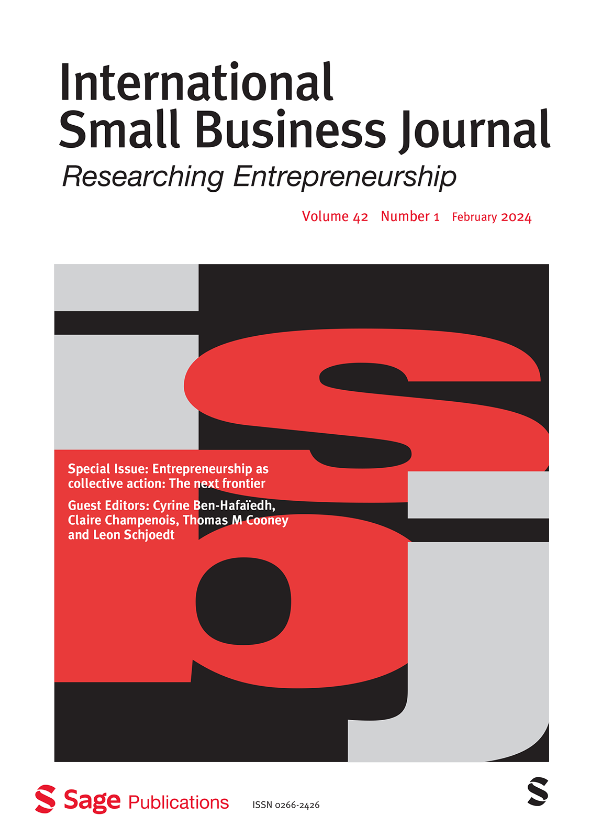自利还是自暴自弃?自雇人士如何在脱欧公投中投票
IF 3.9
2区 管理学
Q1 Business, Management and Accounting
International Small Business Journal-Researching Entrepreneurship
Pub Date : 2023-07-18
DOI:10.1177/02662426231184341
引用次数: 0
摘要
考虑到英国脱欧对英国经济的负面影响,可以预期,自雇人士会倾向于留在欧盟。然而,自雇人士也更有可能具有某些人口特征,这些特征与2016年公投中投票脱欧有关。我们使用具有全国代表性的调查数据调查了这种潜在的抵消影响,并发现与有偿就业相比,自雇男性更有可能离开选民,而女性更少。男性的差异在统计上是显著的,但盖尔巴赫分解表明,这在很大程度上可以用特征来解释,特别是年龄和教育程度。我们的研究结果,特别是对个体经营者的研究结果,是在脱欧对英国小企业持续产生的重要经济后果的背景下讨论的,以及对个体经营者投票行为的进一步证据的需要。本文章由计算机程序翻译,如有差异,请以英文原文为准。
Self-interest or self-defeating? How the self-employed voted in the EU referendum
Given the anticipated negative impact of Brexit on the U.K. economy, it might be expected that self-employed individuals would have favoured remaining in the European Union. However, the self-employed are also more likely to have certain demographic characteristics that are associated with voting leave in the 2016 referendum. We investigate such potentially offsetting influences using nationally representative survey data and find that self-employed men were more, and women less, likely to be leave voters compared to the paid-employed. The differences were statistically significant for men but a Gelbach decomposition reveals that they can largely be explained by characteristics, specifically age and education. Our findings, especially for self-employed men, are discussed within the context of the important economic consequences that Brexit continues to have on small businesses in the United Kingdom as well as the need for further evidence on the voting behaviour of the self-employed.
求助全文
通过发布文献求助,成功后即可免费获取论文全文。
去求助
来源期刊
CiteScore
10.80
自引率
8.50%
发文量
49
期刊介绍:
The International Small Business Journal (ISBJ) is a leading peer-reviewed journal renowned for publishing high-quality original research papers on small business and entrepreneurship. It prioritizes research-based studies that contribute to theory development, critical understanding, and policy formulation related to small firms.
ISBJ papers encompass theoretical, methodological, and empirical studies from various disciplines and perspectives, aiming for research excellence in the field. The journal provides a critical forum for world-class contributions analyzing entrepreneurship and entrepreneurial behavior.
This refereed journal is valuable to academics, policymakers, analysts, government and business officials, small business representative bodies, and support agencies seeking to gain insights into the sector, trade, business institutions, and related matters.

 求助内容:
求助内容: 应助结果提醒方式:
应助结果提醒方式:


